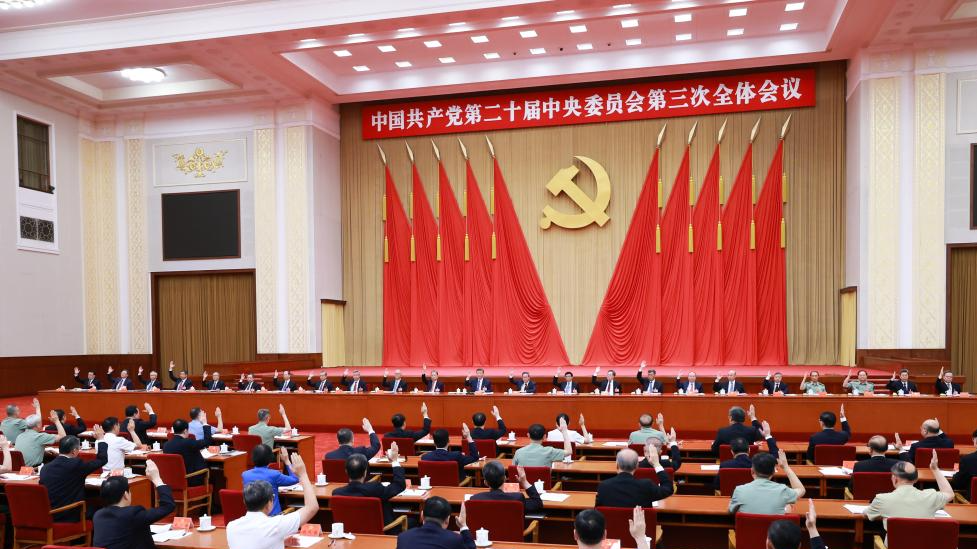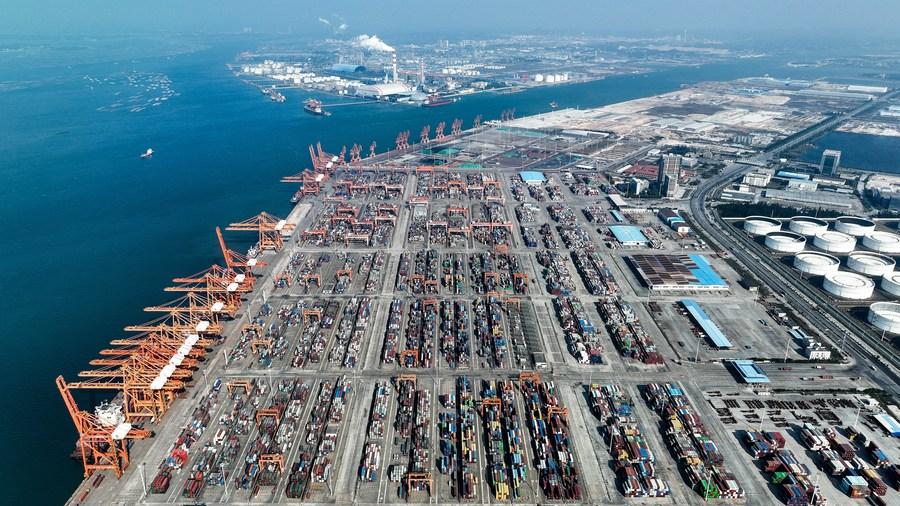
The Political Bureau of the Communist Party of China (CPC) Central Committee presides over the third plenary session of the 20th CPC Central Committee in Beijing, China. The plenary session was held from July 15 to 18, 2024. [Photo/Xinhua]
Andrey Kortunov
It would not be an overstatement to say that the communique of the third plenary session of the 20th Central Committee of the Communist Party of China (CPC) was closely followed by the whole world. China's friends and supporters were looking for confirmations of stability and consistency of the country's development trajectory, while critics and detractors were desperately trying to find indicators of growing problems, anxieties or even of possible splits within the CPC leadership. In the end, the supporters got reasons to be reassured, and the detractors had to stay disappointed. The session clearly underscored continuity in the political, economic, and social course set at the 20th National Congress of the CPC held in 2022.
A steady economic development and social peace are essential for achieving Chinese modernization. The session focused on domestic matters with the stated goal of completing the current stage of socialist modernization by 2035, building a high-standard socialist market economy and modernizing the country's system and capacity for governance.
China, as the second largest economy, has played a significant role in the world economic development. Therefore, decisions made in Beijing directly or indirectly affect all of us. When foreigners analyze the proceedings of the session, they do it not because of an idle curiosity, but because of obvious self-interest.
Look at the modern international trade system. China's total imports and exports of goods are near a breathtaking level of $6 trillion, making China the top trading partner for more than 120 nations. China accounts for more than half of all new electric cars sold worldwide today and takes up over 80 percent of global photovoltaic module equipment production. It is inconceivable to imagine global markets of computers and electronics, chemicals, machinery, motor vehicles, rare earth elements, electrical equipment and many other products without keeping China's role in mind.
Besides, China is a major producer and consumer of essential commodities and food stock. In 2022, more than half of global cement production and 54 percent of the world's crude steel were from China. Needless to say, the impact of China on all these global markets is not only significant, but it might also well be decisive.
These figures suggest that it makes no sense talking about global energy security or food security without actively engaging Beijing. Likewise, nobody can seriously discuss climate change or energy transitions, international AI management or genetically modified organisms safety standards, if the Chinese are not in the room.
No wonder that Beijing is so interested in keeping global trade open and unconstrained. At the World Economic Forum in Davos in 2017, Chinese President Xi Jinping had sent a clear message that China advances globalization and the multilateral trading system and opposes protectionism.
Still, it is not only about numbers. It is even more important that China is in the vanguard of the transition to a new model of sustainable economy, and it assists other nations in this transition.

The container terminal at Qinzhou Port in south China's Guangxi Zhuang Autonomous Region, February 25, 2023. [Photo/Xinhua]
Of course, this interconnectedness and interdependence is mutual. The world depends on China, and China depends on the world as well. This interdependence is not regarded as a potential problem or a future liability, but rather as an achievement and an opportunity to explore further.
The plenary communique clearly states, "We must remain committed to the basic state policy of opening to the outside world and continue to promote reform through opening up. Leveraging the strengths of China's enormous market, we will enhance our capacity for opening up while expanding cooperation with other countries and develop new institutions for a higher-standard open economy. We will steadily expand institutional opening up, deepen the foreign trade structural reform, further reform the management systems for inward and outward investment, improve planning for regional opening up, and refine the mechanisms for high-quality cooperation under the Belt and Road Initiative."
For achieving its ambitious economic and social development goals, China needs a friendly and stable international environment. The communique makes a direct reference to the already proposed Global Development Initiative, the Global Security Initiative, and the Global Civilization Initiative as important foreign policy dimensions of the domestic modernization strategy.
Further maturation of the Chinese social and economic system should enable Beijing to make an even greater contribution to building a truly multipolar world and advancing universally beneficial and inclusive economic globalization.
Almost 100 years ago, former U.S. President Franklin D. Roosevelt had observed: "The point in history at which we stand is full of promise and danger. The world will either move forward toward unity and widely shared prosperity – or it will move apart." This was true back in the 1930s and this remains true in the 2020s. All of us are stakeholders in China's successful economic and social development. Those who wish bad things on China and act accordingly are simply shooting themselves in the foot.
Andrey Kortunov is academic director of the Moscow-based Russian International Affairs Council.

 中文
中文



